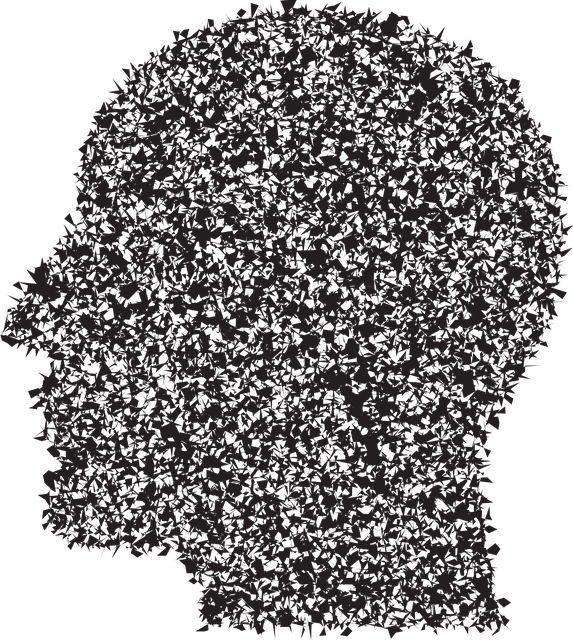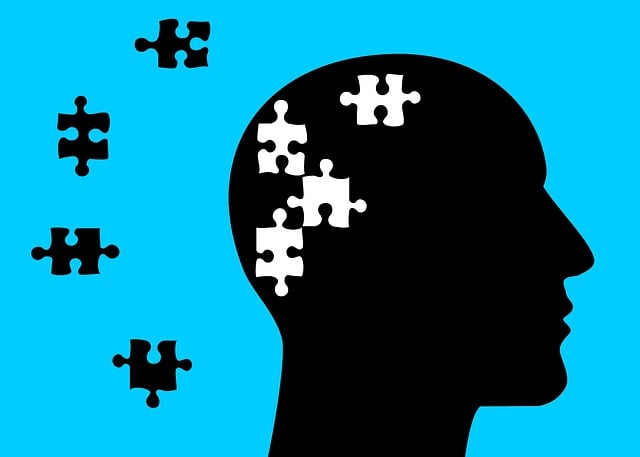Mental health stigma, fueled by media portrayals, discourages help-seeking behaviors in Highlands Ranch, CO. Highlands Ranch Mental Health Evaluations Therapy challenges this through open discussions and resources on burnout prevention and anxiety relief, aiming to destigmatize mental health issues. They employ risk assessment tools for professionals, creating a safe space where individuals feel empowered to access care without judgment. Accurate media representations of diverse mental health experiences are crucial in promoting compassion, reducing stigma, and encouraging help-seeking behaviors. By showcasing recovery journeys and various healing paths, media can foster understanding and support for mental wellness initiatives like Highlands Ranch Mental Health Evaluations Therapy.
In today’s digital age, media plays a pivotal role in shaping societal perceptions of mental health. This article explores the challenge of accurately representing mental illness in various forms of media, addressing the deep-rooted stigma that persists in many communities. We delve into the profound impact of media portrayals on public understanding, highlighting both negative stereotypes and promising shifts towards more nuanced narratives. By examining case studies from Highlands Ranch and beyond, we propose strategies to enhance positive mental health evaluations and therapy representations, fostering a more compassionate and informed society.
- Understanding Mental Health Stigma in Society: The Need for Accurate Representation
- The Impact of Media Portrayals on Public Perception of Mental Illness
- Challenges in Depicting Mental Health Conditions Authentically
- Strategies for Enhancing Positive Mental Health Narratives in Media
- Case Studies: Successful Media Depictions of Mental Health and Their Effects
Understanding Mental Health Stigma in Society: The Need for Accurate Representation

Mental health stigma, deeply ingrained in society, often perpetuates misunderstanding and discrimination. This can significantly impact individuals seeking help, leading to delayed access to care or even avoidance of treatment altogether. Media plays a pivotal role in shaping public perception, making accurate representation crucial. Portrayals that reflect the reality of mental illness, its symptoms, and recovery journeys are essential for fostering empathy and breaking down barriers.
Highlands Ranch Mental Health Evaluations Therapy serves as an example of how communities can challenge these societal norms. By promoting open discussions and providing resources on burnout prevention and anxiety relief, they aim to destigmatize mental health issues. Moreover, risk assessment tools for mental health professionals ensure safe practices, fostering a supportive environment where individuals feel empowered to seek help without fear of judgment, ultimately contributing to improved access and outcomes in mental healthcare.
The Impact of Media Portrayals on Public Perception of Mental Illness

Media portrayals significantly shape public understanding and attitudes towards mental illness, often influencing how individuals from Highlands Ranch, CO perceive and respond to such conditions. When media presents mental health issues accurately and with empathy, it can foster greater compassion, reduce stigma, and encourage those struggling to seek Highlands Ranch Mental Health Evaluations and Therapy. Accurate representations highlight the diversity of experiences, symptoms, and recovery journeys, promoting a more nuanced view that challenges stereotypes.
However, inaccurate or oversimplified portrayals can lead to widespread misunderstandings, perpetuating harmful narratives about mental illness. This may discourage individuals from seeking help, impede progress in Burnout Prevention strategies, and hinder the Emotional Healing Processes. By embracing responsible media representation, we can build Resilience within communities, ensuring that those facing mental health challenges are met with support, understanding, and access to appropriate services.
Challenges in Depicting Mental Health Conditions Authentically

The media’s portrayal of mental health conditions is a complex issue, often presenting challenges that hinder our understanding and empathy. One significant hurdle is the tendency to stereotype and oversimplify these conditions, reducing them to simplistic narratives that fail to capture the nuances of individual experiences. This can lead to misconceptions and further stigmatization, impacting how people in Highlands Ranch or beyond seek and perceive mental health evaluations and therapy. For instance, media often depicts extreme cases, neglecting the vast spectrum of symptoms and severity that actual individuals experience.
Moreover, authentic representation involves not just describing symptoms but also exploring the emotional regulation strategies employed by those affected. By showcasing diverse approaches to self-esteem improvement and empathy building, media can foster a more inclusive and supportive environment. This shift in narrative encourages viewers to recognize the potential for recovery and resilience while encouraging those facing similar challenges to seek help without fear of judgment.
Strategies for Enhancing Positive Mental Health Narratives in Media

Media has a significant impact on shaping societal perceptions and understanding of mental health. To challenge negative stereotypes and foster more accurate representation, content creators can adopt several strategies. Firstly, incorporating characters with diverse mental health journeys into narratives can humanize these experiences. This includes portraying recovery, resilience, and the various paths to healing, rather than focusing solely on illness. Additionally, providing Highlands Ranch Mental Health Evaluations Therapy and support services within storylines can normalize seeking help.
Designing Mental Health Education Programs that offer Self-Awareness Exercises and Mental Wellness Journaling Exercise Guidance for media professionals can empower them to create more nuanced and empathetic content. By encouraging open dialogue, these initiatives ensure that mental illness is represented with dignity and accuracy, ultimately contributing to a healthier and more supportive societal discourse around mental wellness.
Case Studies: Successful Media Depictions of Mental Health and Their Effects

In recent years, several case studies have showcased successful media depictions of mental health, leading to a more nuanced and empathetic understanding among audiences. One standout example is the TV series One Three Hill, which portrayed a character’s journey through depression and recovery, sparking meaningful conversations about mental illness in Highlands Ranch communities. This portrayal not only humanized the condition but also highlighted the importance of seeking therapy and support. The impact was profound, encouraging viewers to initiate open dialogues about mental health and pursue professional help when needed.
Another notable depiction is found in various documentary films that explore the power of Mind Over Matter principles and Emotional Intelligence. These documentaries often feature individuals who have overcome significant mental health challenges through compassionate cultivation practices. By sharing their stories, these productions foster a sense of hope and inspire viewers to cultivate emotional resilience. This approach has been instrumental in reducing stigma and promoting the idea that therapy and self-care are essential components of overall well-being, accessible to anyone, regardless of background.
Mental illness representation in media plays a pivotal role in shaping public perception. By adopting strategies that prioritize authenticity, empathy, and positive narratives, media can help dispel stigma and foster understanding. As seen in successful case studies, accurate depictions of mental health conditions, such as those showcased in various forms of media from television to film, can lead to increased acceptance and support for individuals seeking Highland Ranch Mental Health evaluations and therapy. It is through these representations that we can ultimately challenge societal norms and create a more inclusive environment for all.










